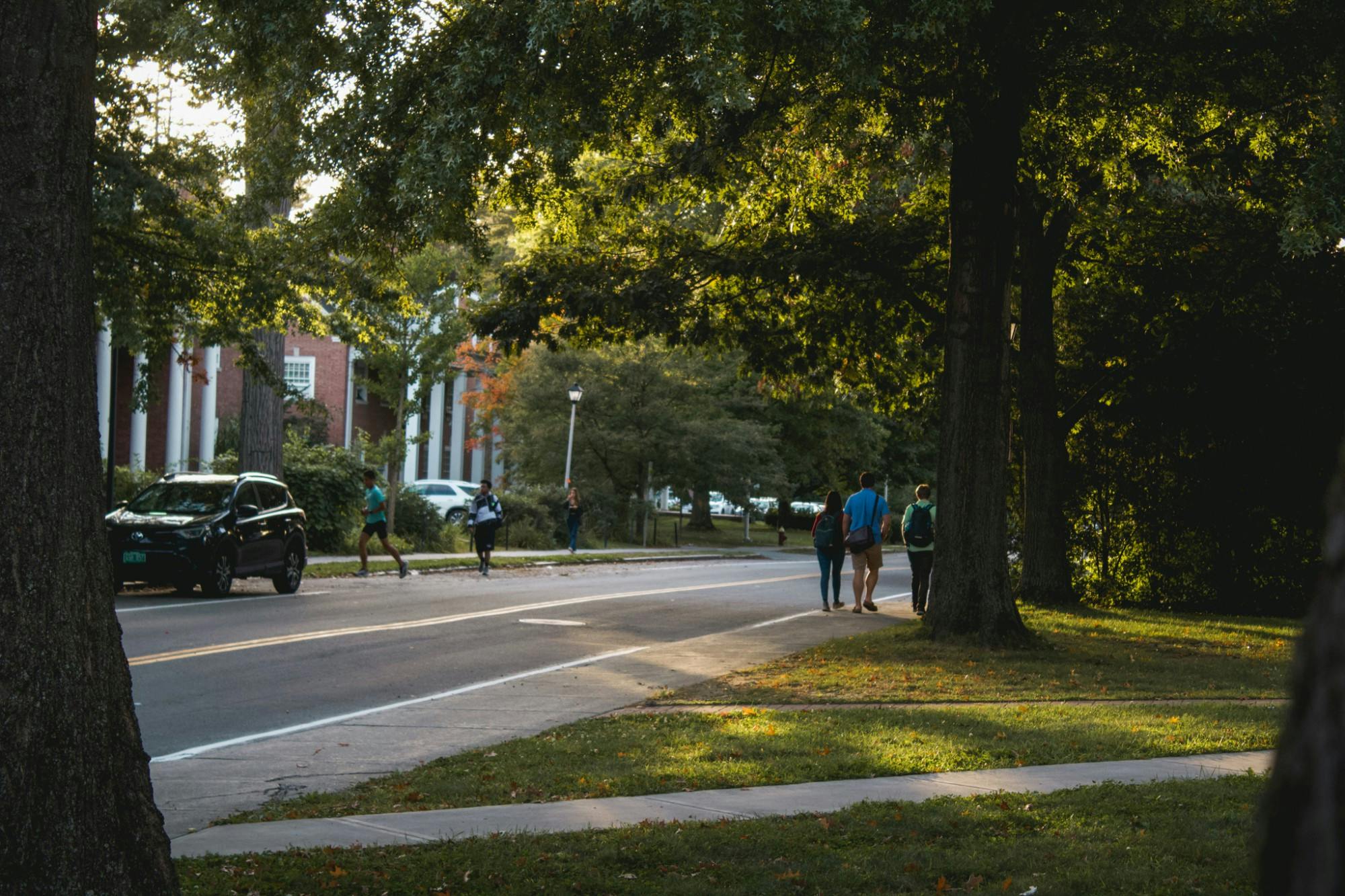In light of the announcement of the deaths of Joshua Watson ’22 and Sam Gawel ’23 on Sept. 21, most Greek houses have delayed timelines for new member recruitment by a week.
The start of sorority recruitment was pushed back to Sept. 27, according to Inter-Sorority Council president Gerol Fang ’23. Similarly, the Interfraternity Council delayed the first day of shakeout by one week to Oct. 7, according to a campus email from the IFC. Rush was also delayed one week for the gender-inclusive Greek houses Alpha Theta and The Tabard, Alpha Theta rush chair Richard Lai ’23 said.
The new dates for sorority recruitment — including round two events occurring on Oct. 3 and Oct. 4 — create a conflict for Jewish recruitment participants who may be celebrating and fasting for Yom Kippur beginning on sunset of Oct. 4, according to Gabi Rodriguez ’23, who is a member of Chi Delta sorority and Dartmouth Hillel.
According to Rodriguez, the Greek Leadership Council believed that they successfully avoided Yom Kippur and any other conflicts when rescheduling recruitment. In reality, the first night of Yom Kippur — called Kol Nidre — is the official start of celebrations, and the time when some practitioners begin to fast. Rodriguez said she felt frustrated about this conflict, especially considering the “history of exclusion” of Jewish people in Greek spaces.
Chair of the Greek Leadership Council, Andrew Bricklin '23, clarified that the sub-councils of the GLC — the ISC, IFC, GIGC and National Pan-Hellenic Council— make decisions on recruitment independent of the GLC. Each sub-council works in conjunction with the Office of Greek Life to set their rush policies and timelines, according to Bricklin.
Rodriguez circulated a petition that gained 54 signatures asking to shift round two events to occur a day earlier, on Sunday, Oct. 2 and Monday, Oct. 3. The ISC did not adopt the suggestions of the petition, but accommodated any potential new members who requested to have all their recruitment events on Monday.
"In this case, the petition and potential conflict was presented to the ISC and the ISC made any relevant decisions. The GLC as a body did not have input or jurisdiction over it," Bricklin wrote in an email statement to The Dartmouth.
For Rodriguez, it was an imperfect solution.
“I feel like that brings a lot of issues because one, you have to ask for accommodations based on your religion and that might be uncomfortable for some people to do,” Rodriguez said. “And two, you’re putting all parties on one day and that's a lot of pressure and that could cause different outcomes. There are people who were very saddened by it because they felt like they had to choose between practicing Kol Nidre and rushing.”
In addition to scheduling challenges, sorority recruitment saw a marked uptick in participants this year. According to Fang, 462 potential new members — a record number — registered for sorority recruitment, up from an already historic high of 417 last year.
“There are a lot of different factors that [the increase] could be attributed to, but I think general excitement is one thing,” Fang said.
Zoe Hu ’25, who is participating in sorority recruitment, said she is experiencing mixed feelings of both excitement and anxiety as the process begins.
“I'm generally very excited for [recruitment] because I would love to know more people through the process,” Hu said. “I envisioned I would find out what Greek life is like since I wasn’t very involved during my freshman year.”
While ISC sorority recruitment consists of three rounds of events for PNMs to meet chapter members, fraternity rush has no official start date or rounds. For Matt Koff ’25, each system has pros and cons, but he said the IFC’s system allows for more personal interactions with a culture of PNMs getting meals with fraternity brothers leading up to bid night.
“I like the way that guy’s rush works, because you actually get to know the brothers in the house, and they get to know you,” Koff said. “But it definitely feels like more of a time commitment.”
Hu said that she is “not nervous at all” for recruitment. However, she recognized that recruitment is a “turning point” for students during their Dartmouth career.
Fang said she advises PNMs to keep an open mind as they traverse the final stretch of recruitment.
“Every chapter is filled with dozens, if not over 100 very different people,” Fang said. “Don't let one conversation or one interaction guide your perception of that whole chapter.”
The Gender-Inclusive Greek Council has also recently seen more interest and rushed bigger classes, according to Gender-Inclusive Greek Council Chair Brandon Hill ’23.
“A lot of people are attracted to gender-inclusive Greek life because of the people it draws and the values it upholds which offer an alternative to traditional Greek life,” Hill said.
He added that awareness of this type of social space is becoming more popular as students begin to explore different pockets of the school to find their niche. However, this increase in PNMs could also be attributed to students yearning for structured social groups in a post-COVID environment, Hill said.
Correction appended (Oct. 5, 3:59 p.m.): A previous version of this article incorrectly implied that the GLC controls recruitment timelines and processes. It also incorrectly stated that Fang is the ISC chair. She is the ISC president. The article has been updated.




